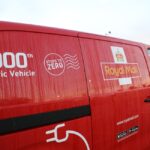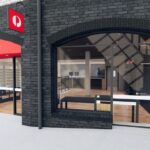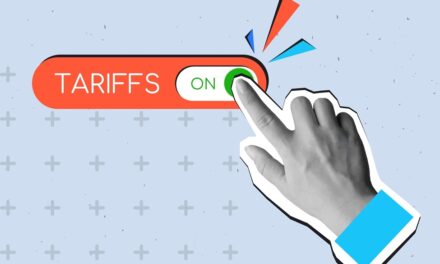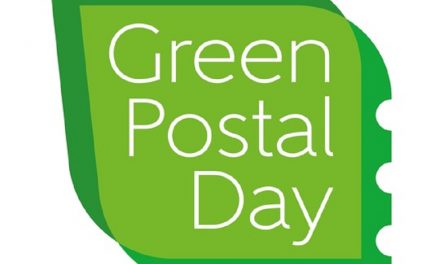
DP DHL growth accelerates in Q2
Deutsche Post DHL generated double-digit revenue growth in the second quarter of this fiscal year, strongly accelerating the growth rate compared to the first quarter. At the same time, the Group nearly doubled its underlying operating profit versus the same period last year.
The DHL divisions were the driving forces behind the increase in consolidated revenue, which climbed 15.6% to EUR 12.8bn compared with the second quarter of 2009.
This development “reflects both the company’s success in acquiring business with new customers and the marked rise in transport volume being fueled by the continuing economic recovery as well as favorable currency effects in all DHL divisions”, said a statement.
In addition, the efficiency measures implemented in 2008 and 2009 have resulted in higher margins and increased profitability of all divisions. Underlying EBIT at the Group totaled EUR 503m, 95.7% above the previous year’s level. Despite significant non-recurring expenses of EUR 250m, which were mainly related to the sale of the domestic Express business in France, the Group’s consolidated net profit still increased 22.7% to EUR 81m in the second quarter of 2010.
“As an enabler of global trade, we benefited significantly from the recovery of the world economy in the second quarter. This was particularly true at the DHL divisions, which have become the sustainable driver of the Group’s profit growth,” said Deutsche Post DHL CEO Frank Appel. “We are now reaping the fruits of our successfully implemented strategic initiatives and efficiency-enhancing measures as well as the portfolio restructuring that we have largely completed.”
Q2 2010
In the second quarter, reported EBIT climbed to EUR 253m, compared with EUR 109m in the previous year. This result includes non-recurring expenses totaling EUR 250m largely related to the sale of the domestic Express business in France that was completed in June. At minus EUR 142m, the Group’s net financial result was considerably lower than the previous year’s level of minus EUR 8m.
This change was, however, solely the result of changes in the valuation of financial instruments related to the sale of Postbank: While the previous year’s figure included positive effects totaling EUR 123m, the updated valuation had a negative impact of EUR 22m in the second quarter of 2010. As a result of the operating improvements, the consolidated net profit after minorities nevertheless rose by 22.7% to EUR 81m compared with the previous year. This reflects an improvement in earnings per share to EUR 0.07 (2009: EUR 0.06).
Capital expenditure and cash flow
The Group’s capital expenditures increased by 20.7% to EUR 286m in the second quarter of 2010 (2009: EUR 237m). This figure includes investments made in new technologies by the MAIL division, including state-of-the-art letter-sorting equipment as well as the company’s new E-Postbrief product. In the second quarter, operating cash flow totaled EUR 365m, well above the previous year’s level of EUR 46m. This positive development was driven by the improvement in operating profit and the significant drop in restructuring expenses in the EXPRESS division compared with the previous year.
Free cash flow reached EUR 217m in the second quarter. During the first six months of each year, the Group’s liquidity is regularly impacted by the annual payment made to the Bundes-Pensions-Service für Post und Telekommunikation, a special pension fund for the company’s civil servants, as well as the dividend payment. Despite these recurring expenses, which totaled EUR 1.3bn this year, and a restructuring cash-out of more than EUR 600m, Deutsche Post DHL still had a solid liquidity position after the first six months of the year. At the end of the second quarter, net liquidity amounted to EUR 535m, a decrease of EUR 1.2bn compared with the 2009 year-end level.
First half 2010
In the first half of 2010, revenue climbed 9.9% to EUR 24.8bn. The strong rise in underlying EBIT of 87.9% to almost EUR 1.1bn was the direct result of growth in volumes and revenues as well as the Group’s increased efficiency. The rise of reported EBIT to EUR 765m can additionally be attributed to the significant reduction in non-recurring expenses. The Group’s consolidated net profit after minorities increased to EUR 1.8bn, 81.0% above the level of the same period last year (2009: EUR 1bn).
In addition to the operating improvements, this development also reflects positive effects from the first-time measurement of the forward related to the Postbank sale from the first quarter that totaled around EUR 1.4bn. In the first six months of the previous year, income from the valuation of financial instruments related to the Postbank sale totaled EUR 879m. After the first half of 2010, earnings per share totaled EUR 1.51, well above the previous year’s level of EUR 0.84. Operating cash flow amounted to EUR 270m in the first six months of this year compared with a cash outflow of EUR 229m in 2009.
Guidance: Full-year underlying EBIT projection increased
For the entire year of 2010, the Group continues to expect a moderate recovery in global transport volumes. As a result of the positive results achieved during the first half of 2010 as well as the better-than-expected development especially in the DHL divisions, the company has raised its earnings guidance for fiscal year 2010. The Board of Management now projects underlying EBIT to total between EUR 1.9bn and EUR 2.1bn. Deutsche Post DHL had previously expected an amount in the range of EUR 1.6bn to EUR 1.9bn.
While earnings in the MAIL division are still expected to total between EUR 1.0bn and EUR 1.2bn, the projected contribution by the DHL divisions is now expected to be around EUR 1.3bn (previous guidance: between EUR 1.0bn and EUR 1.1bn). As a result, for the first time DHL will make a bigger contribution to the Group’s earnings than the MAIL division. Corporate Center/Other expenditures are still forecast at around EUR 400m, slightly higher than in the previous year. The Group also continues to expect that consolidated net profit will improve in 2010 in line with the operating business. Furthermore, the company anticipates that the positive earnings trend will sustain in 2011.
“As the second quarter’s results and the increased guidance for the entire year demonstrate once again, Deutsche Post DHL is strategically well positioned and is well prepared for the future,” Appel said. “By pressing forward with the implementation of our Strategy 2015, we will be able to unlock the Group’s full potential step by step over the coming years.”
MAIL division: successful parcel business
At EUR 3.2bn, second-quarter revenue in the MAIL division was virtually unchanged from the previous year’s level (2009: EUR 3.2bn). The continuing trend of the physical letter being increasingly replaced by electronic media as well as the loss of the Quelle business in Germany led to a revenue decrease. These developments were compensated by the effects of an additional working day and above all the positive performance of the Parcel business in Germany.
Against the backdrop of rapidly rising internet retailing, revenue climbed significantly once again. Further strict cost discipline and increased earnings in the parcel business more than offset the stable revenue development as well as wage increases. As a result, underlying EBIT increased by 42.1% to EUR 243m during the second quarter compared to EUR 171m in the previous year’s period.
EXPRESS division: accelerated growth
In the EXPRESS division, volumes continued to rise in the second quarter, propelled by the economic recovery. As a result, international revenues recorded double-digit growth and were able to more than offset decreases in day-definite domestic products resulting mostly from the sale of the domestic Express business in the United Kingdom. Overall, the pace of growth for the EXPRESS division accelerated rapidly in the second quarter. Revenue climbed by 19.2% to reach EUR 2.9bn (2009: EUR 2.4bn).
Higher income from fuel surcharges also contributed to this positive development. The division’s earnings also improved significantly in the reporting period. Underlying EBIT more than tripled, climbing from EUR 65m in the previous year’s quarter to EUR 198m in the second quarter of 2010. In addition to increased revenue, the positive development mainly reflects the completed restructuring program in the United States, the withdrawal from the domestic Express business in the UK and significant cost cuts achieved around the world.
GLOBAL FORWARDING, FREIGHT division: double-digit growth in air and ocean freight
In the GLOBAL FORWARDING, FREIGHT division, the trend of rising volumes observed since the second half of 2009 continued in the second quarter of 2010. Particularly in air freight, but also in ocean freight, transport volumes climbed sharply compared with the previous year’s quarter. Considerable double-digit growth rates were generated in both categories. Together with higher freight rates, this development led to a steep revenue increase to EUR 3.6bn in the second quarter of the current fiscal year, an increase of 35.6% compared with the previous year’s level of EUR 2.7bn.
Higher prices for transport services weighed on the division’s margins in the second quarter. At the same time, however, the division was increasingly able to pass on the higher prices for scarce capacities that resulted from the strong increase in demand to its customers. Supported also by continuing strict cost management, underlying EBIT rose by 29.1%, climbing from EUR 79m in the second quarter of 2009 to EUR 102m from April to June of this year.
SUPPLY CHAIN division: successful business with new and existing customers
Despite the loss of the Quelle business, revenue of the SUPPLY CHAIN division rose significantly in the second quarter of 2010. While revenue was still down slightly in the first quarter, it reached EUR 3.4bn in the second quarter of 2010, representing an increase of 10.7% compared to 2009. New business wins and an increase in volume among contracts with existing customers produced strong growth, particularly in the Asia-Pacific region.
In the second quarter, additional contracts with new and existing customers worth around EUR 260m were concluded. The contract-renewal rate continued to be above 90%. As a result of margin improvements, the direct result of efficiency-enhancing programs, underlying EBIT climbed strongly to EUR 72m (2009: EUR 16m).












